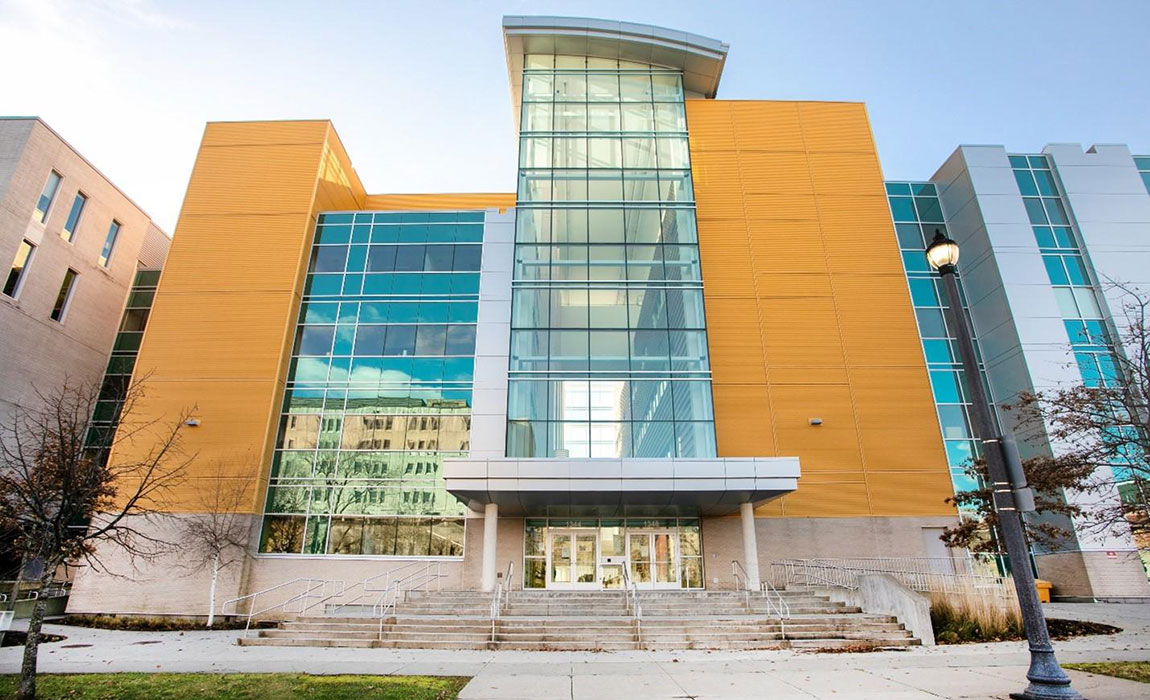Phycus Biotechnologies Create Formaldehyde-Free Skin Care
Tuesday, March 29, 2022
Written by Rachel Cooper, rachelcooper.ca
The AscendBio program in Cape Breton helps build agritech and industrial biotech start-ups. It does this through the Verschuren Centre's scientific and technical expertise and infrastructure, and Innovacorp's sector expertise, business support and international networks.
Many consumers of cosmetic products are unwittingly exposing their skin to formaldehyde, a known carcinogen. That's because glycolic acid, the number one active ingredient in skin care products for anti-aging and exfoliating, is traditionally made from formaldehyde. It is also produced unsustainably from petroleum.
Now, a new formaldehyde-free glycolic acid is being created in Sydney, Cape Breton. This 100 per cent biobased product, manufactured under the tradename Purolic Acid, is made from a naturally derived sugar feedstock.
"We wanted to develop an alternative manufacturing process for producing glycolic acid more sustainably," says Vik Pandit, co-founder and CEO of Phycus Biotechnologies, the company producing Purolic Acid. Vik and his co-founder and business partner, Christian Euler, are the inventors of the company's technology platform.
Christian, the company's director of research and development, is responsible for engineering the strains of microbes used in the fermentation process to make glycolic acid. "We figure out how to change the microbes' genome so they do the chemical transformations we want them to do," he says.
The two met in graduate school, working in the same chemical-engineering lab at the University of Toronto. Both have PhDs in metabolic engineering. They began experimenting in 2017 and incorporated the business in 2018.
"We started fermenting 5 millilitres and below," Christian says. "We moved up to 50 ml, then 500 ml, then 5 litres and so on. Now we're using 1,000-litre fermenters." Part of the process has been to develop a reliable and repeatable purification process to produce cosmetic-grade glycolic acid.
"The feedstocks come from plants that start off as carbon dioxide in the air, which photosynthesis converts to sugars," Vik says. "We use those sugars in our fermentation process." He and Christian estimate that their fermentation-derived glycolic acid has a carbon footprint up to 35 per cent lower than traditional manufacturing methods.
The business currently has five employees: two in Markham, Ontario, where most of the microbe engineering happens, and three at the Verschuren Centre in Sydney, Nova Scotia, where Christian and his team are focused on scaling up production. "In every rough batch we make, one of our products is data, which we then use to make the next batch better," he says.
When Christian came to Nova Scotia in 2020, he and Vik had been seeking a location where they could demonstrate their technology. "The equipment we needed as a start-up was not yet available in Canada," Vik says. "Working with the Verschuren Centre enabled us to get access to the fermentation capacity we needed and scale up."
Phycus is now in the demonstration phase. "We hope to move into commercial production this year," Vik says. "Right now we're getting our products into the hands of prospective customers, who are the brand owners of skin care products."
Nova Scotia has given the business a lot of support, he adds. "I don't mean just financially, although that's there too. But there's a great ecosystem of fermentation companies that have gone through this process, so there are other entrepreneurs we can talk to."
"Innovacorp has been extremely supportive," Christian says. "Paul Richards, who heads up the AscendBio program, helped us find financial support, and he's constantly checking in about what we need to make sure our project works. At the Verschuren Centre, we were Client Zero to some extent and helped them build out this facility. In less than two years we got it up and running. They've been really good to work with."
March 29, 2022




